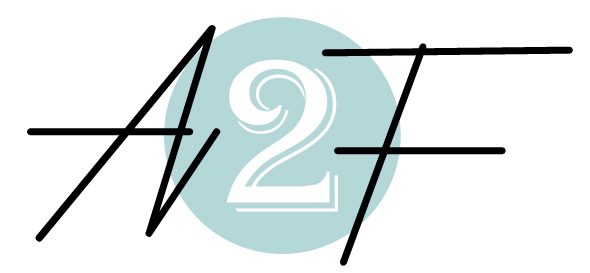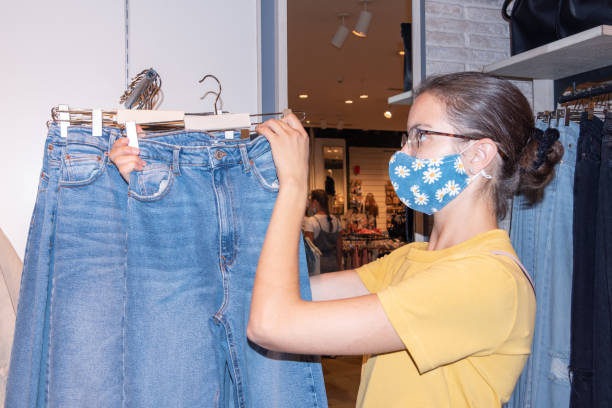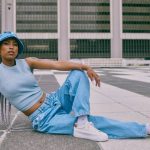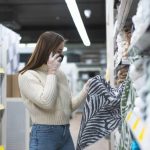Have you ever wondered how this pandemic in the world has affected the fashion industry? We did, too, and we found… a hopeful mess. It would be strange if fashion weren’t one of the industries or individuals affected by Covid-19. We will also examine how some fashion brands are struggling to survive.
Have you ever wondered how this pandemic in the world has affected the fashion industry? We did, too, and we found… a hopeful mess. It would be strange that the fashion industry wasn’t affected by Covid-19. So many people and industries have been affected. Please describe how the fashion world has been affected by the pandemic and the lockdown and how it has adapted and moved forward.
We will also examine how some fashion brands are struggling to survive while others have thrived more than ever. We’ll also look at how some fashion brands struggle to survive while others have found ways to succeed more than ever.
Is Fashion Midseasons Ending?
Alessandro Michelle is the creative director at Gucci and one of those who advocate for no fashion seasons. Alessandro Michelle wants to reduce the number of fashion shows each year from five to just two. He sees gender-free fashion as having a bright future due to its positive impact both on the people and on the environment. But more on that later.
Alessandro’s idea that there should be no fashion in the middle of seasons makes sense. In order for a fashion season to function, it takes a large number of people.
Currently, these events require journalists and designers. That’s a lot of people in one place. It’s not feasible to do this many times per year or even multiple times, at least for now. Gucci’s decision to abandon the traditional fashion ritual will undoubtedly cause a big stir in the industry.
Digital Storefronts: The New Normal
McKinsey’s consumer sentiment survey, conducted in April this year, showed a marked drop in consumers’ intention to buy. This was not the case for online vs. offline channels. According to the survey, in Europe and North America, the purchase intentions declined between 70 and 80 percent in the offline channel and between 30 and 40 percent in the online channel. In China, 74% of consumers said they avoided shopping centers.
For the next two to three years, it is clear that the majority of new clothing and accessories will be purchased digitally.
Lockdowns have been reinstated in several parts of the world with Covid-19 returning. Physical stores will feel the biggest impact since many customers are still afraid to enter large retail spaces. Even in countries that allow direct shopping, brands are quickly shifting to digital sales if they wish to remain profitable.
For now, the days of browsing through racks by hand are gone. The future of digital shopping is already here.
Sustainable Fashion is on the Rise
Wtvox is all about sustainable fashion. According to our latest research, the demand for sustainable clothing is set to grow.
Today, consumers are aware of the harm caused by fast fashion. They also know that resources are becoming scarcer. Fashion buyers are not interested in wastefulness or cruelty. Designers must make changes now if they want to earn a profit.
Olivia Oblanc, a young and forward-thinking designer, is one of the best representatives of sustainable design. Olivia Oblanc has been a leading advocate of sustainability in fashion for the past five years. She is a conscious designer who makes sure her designs are made ethically and economically.
No one knows what the future will bring in terms of resources and how that will affect the fashion industry. This feeling of uncertainty is enough to drive investment in sustainable fashion couture.
Slow fashion, the antithesis of fast fashion – a parasite that reproduces itself and drains resources – is the only solution to the problem, as it protects and nurtures the environment.
Increased Engagement and Awareness
The fashion industry is known for being blinded by red carpet lights and style. It has a reputation as being disconnected and aloof from the reality of our planet. The top tier of society was not concerned about the environment, resources, cruelty, and pollution.
It is difficult to look downwards when your neck is bent forward or if your glasses fall off. Covid-19, despite its tragic and negative aspects, has brought about a positive change. Ralph Lauren, Kenneth Cole, and Burberry are among the big brands that have stepped up to support relief efforts.
History shows us that the fashion industry is blind and only acts when there are world-changing events. The Amazonian Jungle and Australian bushfires followed Rana Plaza. Now, we have #BlackLivesMatter. The industry and media had to wait for another event of global significance to occur before they started recognizing and promoting black fashion designers.
It is therefore not unreasonable to believe that this new level, which brings people together in times of crisis, will result in a more successful industry. There’s also hope that it will remain here forever. After the pandemic is over, it will be here for a while.
Greenwashing is more prevalent than ever.
As with all global upheaval and change, it’s not all going to be good. The number of companies that are trying to ride this wave is also increasing as the demand for sustainable brands grows. These brands prioritize profit over the environment by not doing their homework to ensure their clothes do not deplete the environment.
These brands are greenwashing their customers through fake advertising and paid endorsements. Billie Eilish launched a questionably sustainable fashion line with H&M.
Doing your research is a great way to ensure that dishonest companies don’t try to fool you with the sustainability ruse.




